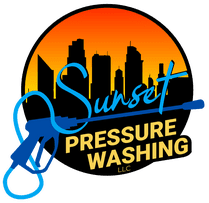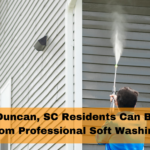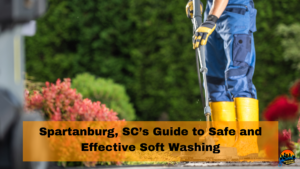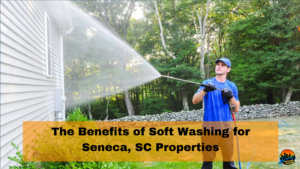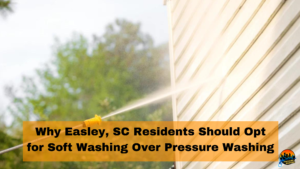
Keeping windows clean is crucial for both the aesthetic appeal and functionality of buildings, be it residential or commercial. In Columbia, SC, the climate and environmental factors necessitate specific practices to ensure windows remain spotless and in good condition. Here’s a comprehensive guide to the best practices for window cleaning services in Columbia, SC.
Understanding the Local Climate
Columbia, SC, boasts a humid subtropical climate, characterized by hot, humid summers and mild winters. This climate has a significant impact on window cleanliness and maintenance. Understanding how the local weather conditions affect window cleaning can help in developing effective cleaning schedules and techniques. Here’s an in-depth look at the key climate factors to consider:
Impact of Humidity and Rainfall
Columbia experiences high humidity levels, especially during the summer months. Humidity can cause dirt and grime to adhere more tenaciously to windows, making them appear cloudy and unclean. Additionally, the frequent rainfall can lead to water spots and streaks if windows are not cleaned properly.
Rainwater often carries pollutants and minerals, which, when left to dry on the window surface, leave behind unsightly marks. Regular cleaning is necessary to combat the build-up of these elements and maintain clear, sparkling windows.
Seasonal Considerations
Each season in Columbia presents unique challenges for window cleaning:
- Spring: The arrival of spring brings a significant amount of pollen, which can coat windows with a yellowish film. This pollen is sticky and can be difficult to remove without thorough cleaning.
- Summer: Summer storms can splash mud, dust, and debris onto windows. Additionally, the intense sun can cause cleaning solutions to dry too quickly, leaving streaks behind. It’s best to clean windows during cooler parts of the day.
- Autumn: Falling leaves and debris can accumulate on windowsills and ledges, while the cooler, damp conditions can promote mildew growth if not addressed promptly.
- Winter: Although winters are mild in Columbia, occasional frost and condensation can form on windows. Regular cleaning and maintenance can help prevent any long-term damage caused by these conditions.
Adjusting Cleaning Schedules
Given these seasonal variations, adjusting cleaning schedules to match the local climate conditions is essential. For instance, increasing the frequency of window cleaning during the spring and after summer storms can help maintain window clarity. Additionally, performing a thorough cleaning at the start of each season can prevent the build-up of grime and debris, making regular maintenance easier.
Local Environmental Factors
Apart from the weather, other environmental factors such as proximity to busy roads or construction sites can contribute to window dirt. Dust and exhaust from vehicles can settle on windows, especially those facing streets or highways. Being aware of these factors and scheduling additional cleanings as needed can help keep windows in optimal condition.
Choosing the Right Cleaning Solutions
Selecting the appropriate cleaning solutions is essential for achieving streak-free, sparkling windows while ensuring safety and environmental responsibility. In Columbia, SC, where the climate can contribute to faster grime buildup, using the right products can make a significant difference. Here’s a detailed guide to choosing the best cleaning solutions for window cleaning services.
Eco-Friendly Cleaners
With growing awareness about environmental sustainability, opting for eco-friendly cleaning solutions is a responsible choice. These products are formulated to be effective while minimizing harm to the environment and human health. Key benefits include:
- Biodegradability: Eco-friendly cleaners break down naturally, reducing environmental pollution.
- Non-Toxic Ingredients: These products are free from harmful chemicals, making them safer for use around children and pets.
- Reduced Air and Water Pollution: By using biodegradable and non-toxic ingredients, eco-friendly cleaners contribute to cleaner air and water.
Popular eco-friendly window cleaning products often contain natural ingredients like vinegar, lemon, and essential oils, which are effective in cutting through grime and leaving windows streak-free.
Homemade vs. Commercial Products
When it comes to window cleaning, both homemade and commercial products have their merits. Here’s a closer look at each option:
Homemade cleaning solutions are cost-effective and can be just as effective as commercial products for less severe grime. Common recipes include:
- Vinegar and Water: A mixture of equal parts white vinegar and water is a popular homemade window cleaner. Vinegar’s acidity helps break down dirt and grease, leaving windows clear.
- Dish Soap and Water: A few drops of dish soap in a bucket of water can help cut through tough grime. Rinse thoroughly to avoid soap residue.
- Rubbing Alcohol and Water: Mixing rubbing alcohol with water and a few drops of essential oil creates a quick-drying, streak-free solution.
These homemade solutions are ideal for regular maintenance and can be easily prepared with household ingredients.
Commercial Products
Commercial window cleaning products are designed for efficiency and often contain ingredients that enhance cleaning power and reduce streaking. Benefits of using commercial products include:
- Specialized Formulas: Designed to tackle specific issues such as hard water stains or heavy grime.
- Consistency: Commercial products offer consistent results, making them reliable for professional cleaning services.
- Convenience: Ready-to-use formulas save time and effort compared to mixing homemade solutions.
When choosing commercial products, look for those labeled as environmentally friendly or green-certified to ensure you are making a responsible choice.
Specialty Cleaners for Different Window Types
Different types of windows may require specific cleaning solutions to avoid damage and achieve the best results. Consider the following:
- Tinted Windows: Use cleaners specifically formulated for tinted glass to prevent damage to the tint film.
- Stained and Leaded Glass: Opt for mild, non-abrasive cleaners to preserve the integrity and beauty of stained and leaded glass windows.
- Hard Water Stains: Specialized hard water stain removers can effectively tackle mineral deposits without scratching the glass.
Safety and Storage
Proper storage and handling of cleaning solutions are crucial for safety and effectiveness. Follow these tips:
- Labeling: Clearly label all cleaning solutions, especially homemade mixtures, to avoid confusion and accidental misuse.
- Storage: Store cleaning products in a cool, dry place away from direct sunlight and out of reach of children and pets.
- Usage Instructions: Always follow the manufacturer’s instructions for commercial products to ensure safe and effective use.
Testing and Quality Control
Before using a new cleaning solution on a large area, test it on a small, inconspicuous spot to ensure it does not cause damage or streaking. Regularly evaluate the effectiveness of the cleaning products and make adjustments as needed to maintain high-quality results.
Using the Correct Tools
The effectiveness of window cleaning is significantly influenced by the tools used. High-quality, well-maintained tools not only ensure a streak-free finish but also enhance the efficiency and safety of the cleaning process. Here’s a comprehensive guide to the essential tools for window cleaning services in Columbia, SC.
Squeegees and Scrubbers
A good squeegee is a window cleaner’s best friend. Key features to look for in a squeegee include:
- Replaceable Rubber Blades: Ensure the squeegee has a durable rubber blade that can be easily replaced when worn out. Soft rubber blades are ideal for colder weather, while harder blades work better in warmer conditions.
- Ergonomic Handle: A comfortable, ergonomic handle reduces hand fatigue and improves control during the cleaning process.
- Adjustable Angles: Some squeegees come with adjustable heads to accommodate various window angles, making it easier to clean hard-to-reach areas.
Effective Scrubbers
Scrubbers, or window washers, are essential for loosening dirt and grime before squeegeeing. Features to consider include:
- Microfiber Sleeves: Microfiber is highly effective at trapping dirt and absorbing water without scratching the glass.
- Replaceable Sleeves: Choose scrubbers with removable and washable sleeves to maintain hygiene and effectiveness.
- Sturdy Construction: A robust handle and frame ensure longevity and ease of use.
Extension Poles and Ladders
For multi-story buildings and hard-to-reach windows, extension poles and ladders are indispensable tools.
Extension Poles
Extension poles allow window cleaners to reach high windows without the need for ladders, enhancing safety and efficiency. Key features include:
- Adjustable Lengths: Look for poles that can extend to various lengths to accommodate different window heights.
- Lightweight Material: Aluminum or fiberglass poles are lightweight yet sturdy, reducing arm fatigue during use.
- Secure Attachments: Ensure the pole has secure attachments for squeegees and scrubbers to prevent them from falling off during use.
Ladders
When extension poles are not sufficient, ladders become necessary. Safety and stability are paramount. Consider the following:
- Sturdy Construction: Choose ladders made from high-quality materials such as aluminum or fiberglass to ensure stability and durability.
- Non-Slip Feet: Non-slip rubber feet prevent the ladder from sliding on various surfaces, enhancing safety.
- Proper Height: Ensure the ladder height is suitable for the windows being cleaned to avoid overreaching, which can lead to accidents.
Safety Gear
Safety should always be a top priority in window cleaning. Appropriate safety gear includes:
- Harnesses: For cleaning high windows, especially on multi-story buildings, harnesses provide fall protection.
- Gloves: Durable, non-slip gloves protect hands from harsh cleaning solutions and improve grip on tools.
- Non-Slip Shoes: Shoes with good traction prevent slipping, especially when working on wet surfaces.
Additional Tools and Accessories
Other tools and accessories can enhance the window cleaning process:
- Buckets: A sturdy, large-capacity bucket is essential for holding cleaning solutions. Consider buckets with built-in squeegee holders for convenience.
- Scrapers: Scrapers with replaceable blades are useful for removing stubborn stains and debris. Ensure they are used carefully to avoid scratching the glass.
- Detailing Cloths: Lint-free microfiber cloths are ideal for wiping edges and corners, ensuring a streak-free finish.
- Water-Fed Poles: These poles are equipped with brushes and a water delivery system, allowing for cleaning with pure water, which minimizes streaks and spots.
Maintenance and Care
Proper maintenance and care of window cleaning tools are crucial for their longevity and effectiveness. Follow these tips:
- Regular Cleaning: Clean squeegees, scrubbers, and other tools after each use to prevent the buildup of dirt and grime.
- Storage: Store tools in a dry, safe place to prevent damage and prolong their lifespan.
- Replacement: Regularly inspect tools for wear and tear and replace any worn-out parts promptly to maintain high cleaning standards.
Implementing Safety Measures
Window cleaning, especially for multi-story buildings, can be a hazardous task if proper safety measures are not implemented. Ensuring the safety of window cleaning staff and preventing accidents is paramount. Here’s a detailed guide to implementing effective safety measures for window cleaning services in Columbia, SC.
Comprehensive Training Programs
Proper training is the foundation of safety in window cleaning. All staff should undergo comprehensive training programs that cover:
- Use of Equipment: Proper handling and maintenance of cleaning tools, extension poles, and ladders.
- Safety Protocols: Detailed instruction on safety procedures, including fall prevention and emergency response.
- Chemical Handling: Safe use and storage of cleaning solutions to prevent chemical burns and inhalation hazards.
- Ergonomics: Techniques to reduce strain and injury during repetitive tasks, such as proper lifting and squeegeeing methods.
Regular Refresher Courses
Conduct regular refresher courses to keep staff updated on the latest safety practices and equipment. This ensures continuous adherence to safety protocols and reduces the risk of complacency.
Personal Protective Equipment (PPE)
Providing the appropriate personal protective equipment is crucial for minimizing risk. Essential PPE includes:
- Harnesses and Lanyards: For working at heights, harnesses and lanyards are vital. Ensure they are certified and regularly inspected for wear and tear.
- Gloves: Non-slip gloves protect hands from harsh chemicals and improve grip on wet tools.
- Non-Slip Shoes: Shoes with good traction prevent slipping, especially when working on wet or uneven surfaces.
- Safety Glasses: Protect eyes from splashes of cleaning solutions and debris.
Ladder Safety
When using ladders, follow these safety guidelines:
- Stable Surface: Always place ladders on a stable, level surface. Use ladder levelers if necessary.
- Three-Point Contact: Maintain three points of contact (two hands and one foot or two feet and one hand) while climbing and working on a ladder.
- Proper Angle: Set the ladder at the correct angle (approximately 75 degrees) to prevent tipping.
- Do Not Overreach: Avoid leaning too far to one side. Instead, move the ladder to a new position.
Use of Scaffolding and Aerial Lifts
For higher windows, scaffolding or aerial lifts may be required:
- Certified Equipment: Ensure all scaffolding and aerial lifts are certified and regularly inspected.
- Training: Only trained and authorized personnel should operate aerial lifts.
- Harnesses: Always use harnesses and secure them to designated anchor points.
Anchor Points and Guardrails
Install permanent anchor points and guardrails on rooftops and high ledges where window cleaning is frequently performed. These provide secure attachment points for harnesses and lanyards, enhancing fall protection.
Rope Descent Systems
When using rope descent systems, ensure:
- Proper Setup: Secure the system to a certified anchor point and inspect ropes and hardware for any signs of wear or damage.
- Controlled Descent: Use controlled descent devices to regulate speed and prevent accidents.
Safe Handling of Cleaning Solutions
Chemicals used in window cleaning can pose hazards if not handled correctly. Follow these safety measures:
- Labeling: Clearly label all cleaning solutions, especially homemade mixtures, to avoid confusion and accidental misuse.
- Proper Storage: Store chemicals in a cool, dry place, away from direct sunlight and out of reach of children and pets.
- Usage Instructions: Always follow the manufacturer’s instructions for commercial products to ensure safe and effective use.
- Ventilation: Ensure good ventilation when using cleaning solutions to prevent inhalation of fumes.
Emergency Plans
Develop and communicate clear emergency plans for various scenarios, such as falls, chemical spills, and severe weather. Conduct regular drills to ensure everyone knows their role and how to respond quickly.
Regular Safety Audits
Conduct regular safety audits to identify potential hazards and ensure compliance with safety protocols. Inspections should cover:
- Equipment Condition: Check the condition of ladders, harnesses, ropes, and other tools.
- Safety Gear: Ensure all PPE is in good condition and properly used.
- Work Practices: Observe work practices to ensure adherence to safety procedures.
Scheduling Regular Maintenance
Regular maintenance is critical for keeping windows in pristine condition, ensuring longevity, and preserving the aesthetic appeal of buildings. In Columbia, SC, where environmental factors like humidity and rainfall can accelerate grime buildup, a well-structured maintenance schedule is essential. Here’s a detailed guide to scheduling regular maintenance for window cleaning services.
Frequency of Cleaning
The frequency of window cleaning depends on various factors, including the building’s location, exposure to pollutants, and usage. Consider the following guidelines:
- Residential Properties: Generally, residential windows should be cleaned at least twice a year. However, homes located near busy roads or industrial areas may require more frequent cleaning.
- Commercial Buildings: Commercial buildings, especially those in high-traffic areas, benefit from quarterly cleaning to maintain a professional appearance.
- Special Cases: Buildings with unique needs, such as hospitals or restaurants, may need monthly cleaning to meet health and safety standards.
Seasonal Adjustments
Adjust cleaning schedules to account for seasonal changes:
- Spring: Increase the frequency during spring due to pollen accumulation.
- Summer: Regular cleaning during summer helps manage the effects of rain and thunderstorms.
- Autumn: Remove fallen leaves and debris more frequently in autumn.
- Winter: While winter cleaning might be less frequent, it is essential to address any condensation or frost issues promptly.
Contract Services
Setting up regular contract services with professional window cleaning companies offers several advantages:
- Consistency: Ensures a consistent level of cleanliness and maintenance.
- Cost-Effectiveness: Often more cost-effective than sporadic cleanings, with potential discounts for long-term contracts.
- Professional Expertise: Access to professional expertise and equipment ensures high-quality results.
Customizing Contracts
Work with clients to customize contracts based on their specific needs:
- Flexible Scheduling: Offer flexible scheduling options to accommodate different client requirements.
- Detailed Plans: Provide detailed maintenance plans outlining the frequency and scope of services.
- Customer Support: Ensure responsive customer support for any adjustments or additional services required.
Specialized Techniques for Different Window Types
Different types of windows require specialized maintenance techniques:
- Stained and Leaded Glass: Schedule gentle cleaning with mild solutions to preserve their intricate designs.
- Tinted Windows: Use products compatible with tint films to prevent damage and discoloration.
- Skylights and High Windows: Ensure these are included in the regular schedule, using appropriate safety measures for accessibility.
Preventive Measures
Applying protective coatings to windows can minimize the buildup of grime and make future cleanings easier:
- Hydrophobic Coatings: These coatings repel water, reducing water spots and streaks.
- UV Protection: Coatings that protect against UV rays help prevent discoloration and damage.
Regular Inspections
Incorporate regular inspections into the maintenance schedule to identify and address issues early:
- Seal Inspections: Check window seals for any signs of wear or leaks.
- Frame Maintenance: Ensure window frames are in good condition, with no signs of rot or damage.
- Hardware Checks: Inspect and maintain window hardware, such as locks and hinges, to ensure they function correctly.
Emergency and Post-Event Cleanings
Schedule additional cleanings following severe weather events:
- Storm Cleanups: Address dirt, debris, and water spots caused by storms promptly.
- Post-Pollen Season: Plan a thorough cleaning after the peak pollen season to remove any buildup.
Customer Requests
Be responsive to customer requests for additional cleanings due to special events or unexpected needs:
- Special Events: Offer pre- and post-event cleanings for clients hosting significant events.
- Emergency Cleanings: Provide emergency cleaning services for unexpected situations, ensuring rapid response and resolution.
Documentation and Record-Keeping
Maintain detailed logs of all cleaning activities:
- Service Dates: Record the dates of each cleaning service.
- Tasks Completed: Document the specific tasks performed during each visit.
- Observations: Note any issues observed and actions taken to address them.
Customer Communication
Keep open lines of communication with customers regarding their maintenance schedule:
- Reminders: Send reminders for upcoming scheduled cleanings.
- Feedback: Encourage customer feedback to continually improve service quality.
- Adjustments: Be flexible in adjusting schedules based on customer needs and preferences.
Specialized Techniques for Different Window Types
Different types of windows require specific cleaning techniques to ensure they remain in good condition and achieve optimal cleanliness. In Columbia, SC, where environmental factors can exacerbate grime buildup, using the right techniques for each window type is crucial. Here’s a comprehensive guide to specialized techniques for different window types.
Stained and Leaded Glass
Stained and leaded glass windows are delicate and require special care to preserve their beauty and integrity:
- Mild Solutions: Use a mild, non-abrasive cleaning solution, such as a mixture of distilled water and a few drops of dish soap. Avoid harsh chemicals that can damage the glass and lead.
- Soft Cloths: Use a soft, lint-free cloth or microfiber cloth to gently clean the surface. Avoid scrubbing, which can scratch or damage the intricate designs.
Avoiding Excessive Moisture
Excessive moisture can weaken the lead and cause damage to stained glass:
- Damp Cloth: Use a damp cloth rather than soaking the window with water. Wipe gently and avoid letting water pool in the leaded areas.
- Quick Drying: After cleaning, dry the window promptly with a dry, soft cloth to remove any remaining moisture.
Tinted Windows
Tinted windows have a delicate film that can be easily damaged by improper cleaning:
- Ammonia-Free Cleaners: Use ammonia-free cleaning solutions specifically designed for tinted windows to avoid discoloration and damage to the tint film.
- Spray and Wipe: Spray the cleaner onto a soft cloth rather than directly onto the window to control the amount of solution used and prevent streaking.
Gentle Techniques
To maintain the integrity of the tint film, use gentle cleaning techniques:
- Soft Cloths: Use a soft, microfiber cloth to wipe the window, ensuring a streak-free finish without scratching the tint.
- Light Pressure: Apply light pressure when cleaning to avoid peeling or damaging the tint film.
Skylights and High Windows
Cleaning skylights and high windows requires safe access methods to prevent accidents:
- Extension Poles: Use extension poles with adjustable heads to reach high windows without the need for ladders. Attach squeegees and scrubbers to the poles for effective cleaning.
- Rope Descent Systems: For very high windows, use rope descent systems with proper harnesses and safety measures to ensure safe access.
Proper Tools
Using the right tools for high windows ensures effective cleaning without compromising safety:
- Water-Fed Poles: Water-fed poles with soft-bristle brushes and purified water systems can clean high windows without leaving spots or streaks.
- Long-Handled Squeegees: Long-handled squeegees with adjustable angles make it easier to clean hard-to-reach areas.
Double-Paned Windows
Double-paned windows are designed to improve insulation but can suffer from condensation between the panes if not properly maintained:
- Desiccant Packs: Ensure that desiccant packs within the window frames are functioning correctly to absorb moisture and prevent condensation.
- Seal Inspections: Regularly inspect window seals for any signs of damage or wear. Replace damaged seals promptly to maintain the integrity of the double glazing.
Cleaning Both Sides
Cleaning both sides of double-paned windows requires careful techniques to ensure a clear view:
- Interior Cleaning: Clean the interior side using a mild solution and a soft cloth, ensuring no streaks are left behind.
- Exterior Cleaning: Use appropriate tools such as extension poles and water-fed systems to clean the exterior side effectively.
Cleaning Both Sides
Cleaning both sides of double-paned windows requires careful techniques to ensure a clear view:
- Interior Cleaning: Clean the interior side using a mild solution and a soft cloth, ensuring no streaks are left behind.
- Exterior Cleaning: Use appropriate tools such as extension poles and water-fed systems to clean the exterior side effectively.
French Windows
French windows, with their multiple panes, require detailed cleaning to ensure all areas are spotless:
- Small Squeegees: Use small squeegees to clean each pane individually, ensuring a streak-free finish.
- Corner Brushes: Use soft brushes to reach and clean the corners and edges of each pane, where dirt and grime often accumulate.
Careful Handling
Handle French windows with care to avoid damage to the panes and frames:
- Gentle Solutions: Use gentle cleaning solutions that do not damage the glass or the wooden frames.
- Soft Cloths: Use soft cloths or sponges to clean and dry each pane, ensuring no scratches or damage.
Sliding Windows
Sliding windows often accumulate dirt and debris in their tracks, affecting their functionality:
- Vacuuming: Use a vacuum with a narrow nozzle attachment to remove loose dirt and debris from the tracks.
- Brushes: Use a small, stiff brush to scrub the tracks, removing any remaining dirt and grime.
Regular Lubrication
To ensure smooth operation, regularly lubricate the tracks of sliding windows:
- Silicone Spray: Apply a silicone spray to the tracks to reduce friction and prevent sticking.
- Wipe Excess: After applying the lubricant, wipe away any excess to prevent dirt from accumulating.
Dealing with Hard Water Stains
Hard water stains are a common issue in areas with high mineral content in the water, such as Columbia, SC. These stains appear as white, chalky spots or streaks on windows and can be challenging to remove if not addressed promptly. Here’s a comprehensive guide to dealing with hard water stains on windows effectively.
Identifying Hard Water Stains
Appearance
Hard water stains typically appear as:
- White or Cloudy Spots: These spots are caused by the mineral deposits left behind after water evaporates.
- Streaks: Streaks form when water runs down the window and dries, leaving a trail of minerals.
Common Causes
Understanding the common causes of hard water stains can help in preventing them:
- Sprinkler Systems: Water from sprinklers can spray onto windows, leaving mineral deposits as it dries.
- Rainwater: In areas with hard water, rain can leave mineral residues on windows.
- Condensation: Frequent condensation can lead to mineral buildup over time if not regularly cleaned.
Removal Techniques
Vinegar Solution
A vinegar solution is one of the most effective and environmentally friendly methods for removing hard water stains:
- Mixing the Solution: Combine equal parts white vinegar and distilled water in a spray bottle.
- Application: Spray the solution generously onto the stained areas of the window.
- Soaking Time: Allow the solution to sit for 5-10 minutes to break down the mineral deposits.
- Scrubbing: Use a soft cloth or sponge to gently scrub the stained areas. For stubborn stains, a non-abrasive scrub pad can be used.
- Rinsing and Drying: Rinse the window with distilled water and dry it with a clean, lint-free cloth to prevent new spots from forming.
Commercial Hard Water Stain Removers
For more stubborn stains, commercial hard water stain removers can be very effective:
- Choosing a Product: Select a product specifically designed for hard water stain removal. Ensure it is safe for use on glass.
- Application: Follow the manufacturer’s instructions for application, which typically involves applying the product, letting it sit, and then scrubbing.
- Safety Precautions: Wear gloves and ensure good ventilation when using chemical cleaners to avoid skin irritation and inhalation of fumes.
Baking Soda Paste
Baking soda is another natural cleaner that can help remove hard water stains:
- Mixing the Paste: Create a paste by mixing baking soda with a small amount of water.
- Application: Apply the paste to the stained areas using a soft cloth or sponge.
- Scrubbing: Gently scrub the stains with the cloth or sponge. The mildly abrasive nature of baking soda helps lift the mineral deposits without scratching the glass.
- Rinsing and Drying: Rinse the window thoroughly with distilled water and dry with a clean cloth.
Preventive Measures
Regular Cleaning
Regular cleaning is essential to prevent hard water stains from becoming a persistent problem:
- Scheduled Maintenance: Establish a regular window cleaning schedule to remove any mineral deposits before they have a chance to build up.
- Quick Response: Clean windows promptly after rain or sprinkler exposure to prevent water spots from forming.
Protective Coatings
Applying a protective coating to windows can help repel water and prevent mineral buildup:
- Hydrophobic Coatings: These coatings cause water to bead up and roll off the glass, taking minerals with it.
- Application: Follow the manufacturer’s instructions for applying the coating, which typically involves cleaning the window thoroughly first and then applying the coating evenly.
Adjusting Sprinklers
If sprinklers are a frequent cause of hard water stains, adjusting them can help:
- Direction: Ensure that sprinklers are directed away from windows to minimize water contact.
- Height: Adjust the height of sprinklers to reduce overspray onto windows.
Professional Services
Hiring Professionals
For severe or persistent hard water stains, hiring professional window cleaning services can be beneficial:
- Expertise: Professionals have access to specialized tools and products that are more effective at removing hard water stains.
- Safety: Professional services can safely clean high or hard-to-reach windows, reducing the risk of accidents.
Regular Maintenance Contracts
Consider setting up a regular maintenance contract with a professional window cleaning service:
- Scheduled Cleanings: Regular cleanings prevent hard water stains from becoming a problem.
- Customized Plans: Maintenance plans can be customized based on the specific needs of the property, ensuring consistent and effective cleaning.
Personalized Inspection and Maintenance Plans
It’s also a good idea to work with a professional cleaning service to establish a personalized inspection and maintenance plan. A professional can assess the condition of your property and recommend a schedule based on its specific needs and the challenges posed by the local environment.
Columbia, SC's Best Practices for Window Cleaning Services
Implementing best practices for window cleaning in Columbia, SC, ensures your windows remain spotless and well-maintained, reflecting the beauty and professionalism of your property. By understanding the local climate, choosing the right cleaning solutions, using proper tools, implementing safety measures, scheduling regular maintenance, employing specialized techniques, and effectively dealing with hard water stains, you can achieve outstanding results and extend the lifespan of your windows.
For exceptional window cleaning services that adhere to these best practices, consider hiring a professional team like Sunset Pressure Washing. Visit Sunset Pressure Washing to learn more about their comprehensive services and to schedule a consultation. Let the experts handle your window cleaning needs, ensuring your property always looks its best.
